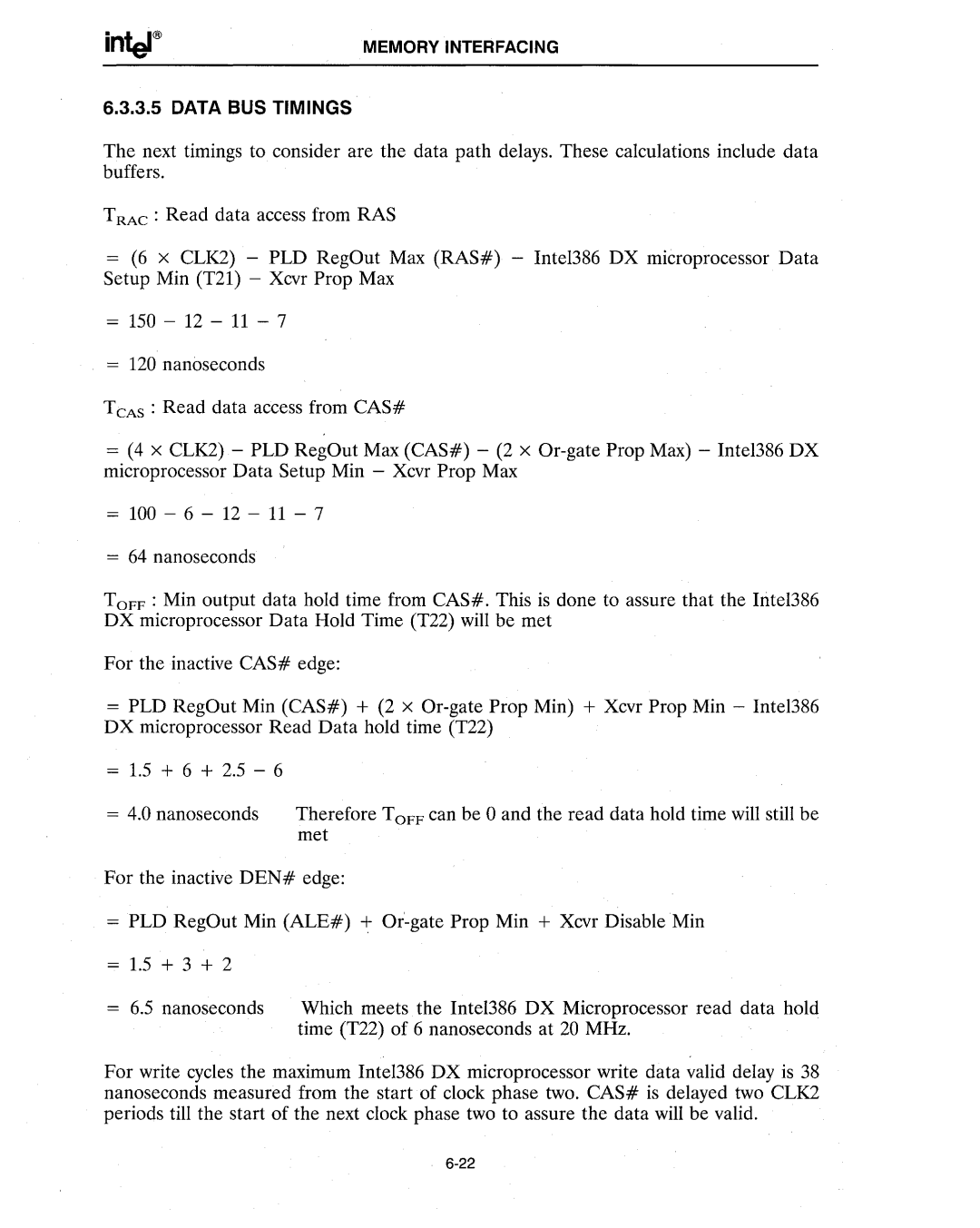
MEMORY INTERFACING
6.3.3.5 DATA BUS TIMINGS
The next timings to consider are the data path delays. These calculations include data buffers.
TRAe : Read data access from RAS
=(6 x CLK2) - PLD RegOut Max (RAS#) - Intel386 DX microprocessor Data Setup Min (T21) - Xcvr Prop Max
150 - 12 - 11 - 7
120 nanoseconds
T CAS : Read data access from CAS#
=(4 x CLK2) - PLD RegOut Max (CAS#) - (2 x
=100 - 6 - 12 - 11 - 7
=64 nanoseconds
TOFF : Min output data hold time from CAS#. This is done to assure that the Intel386 DX microprocessor Data Hold Time (T22) will be met
For the inactive CAS# edge:
=PLD RegOut Min (CAS#) + (2 x
=1.5 + 6 + 2.5 - 6
=4.0 nanoseconds Therefore TOFF can be 0 and the read data hold time will still be met
For the inactive DEN# edge:
=PLD RegOut Min (ALE#) + Or~gate Prop Min + Xcvr Disable Min
1.5+ 3 + 2
6.5nanoseconds Which meets the Intel386 DX Microprocessor read data hold time (T22) of 6 nanoseconds at 20 MHz.
For write cycles the maximum Intel386 DX microprocessor write data valid delay is 38 nanoseconds measured from the start of clock phase two. CAS# is delayed two CLK2 periods till the start of the next clock phase two to assure the data will be valid.
